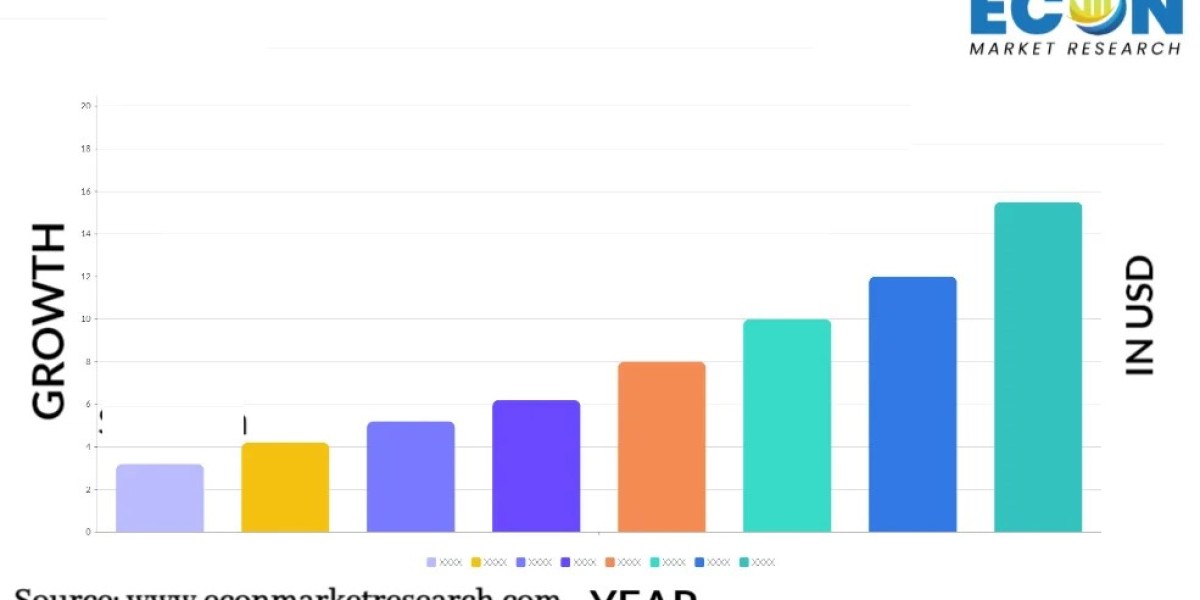Tunnel Boring Machines (TBMs) are revolutionary devices in construction, specifically designed to excavate tunnels with efficiency, precision, and minimal environmental disruption. These massive machines are engineered to carve through soil, rock, and other materials, creating tunnels for transportation, water conveyance, and energy infrastructure. TBMs are highly valued for their ability to perform large-scale excavation while minimizing surface-level impacts, which is particularly beneficial in urban and environmentally sensitive areas. As cities grow and infrastructure demands rise, TBMs have become indispensable in supporting subterranean construction projects worldwide.
More info : https://www.econmarketresearch.com/industry-report/tunnel-boring-machine-market/
How Tunnel Boring Machines Work: Precision Engineering in Action
TBMs operate with a rotating cutting head at the front that is equipped with specialized discs and cutting tools. As the machine advances, these tools break down rock and soil, which is then transported through conveyor systems to the rear of the machine. A shielded structure encloses the entire machine, providing stability and support to prevent collapses during the tunneling process. Hydraulic jacks push the machine forward, while the excavated material is continuously removed, creating a smooth tunnel. TBMs also install support structures, such as concrete segments, as they move forward, ensuring the tunnel remains secure even as excavation proceeds.
Types of Tunnel Boring Machines: Choosing the Right TBM for the Job
There are several types of TBMs, each designed for specific ground conditions and project requirements. Earth Pressure Balance (EPB) machines are ideal for soft, loose soil conditions and use the excavated material to balance the pressure at the tunnel face. Slurry TBMs are used for highly saturated or sandy soils, where a slurry mixture stabilizes the tunnel face and assists in soil removal. For hard rock, Hard Rock TBMs are equipped with robust, high-strength disc cutters that can efficiently break through solid rock. Mixed Ground TBMs are designed for varied conditions, where the composition of the earth changes along the tunnel path, requiring adaptability to both soft soil and hard rock environments.
Advantages of Using Tunnel Boring Machines: Efficiency, Safety, and Reduced Environmental Impact
TBMs offer several advantages over traditional drilling and blasting methods, particularly in terms of efficiency, safety, and environmental impact. With TBMs, excavation and lining of the tunnel are continuous processes, allowing for faster completion times compared to conventional methods. The enclosed nature of TBMs reduces the risk of collapse and provides a controlled environment, enhancing worker safety. Additionally, TBMs minimize surface disruption, making them ideal for projects in densely populated or environmentally sensitive areas. By reducing dust, noise, and vibrations, TBMs have a far less intrusive impact on surrounding ecosystems and communities.
Applications of Tunnel Boring Machines in Urban Infrastructure
TBMs play a critical role in urban infrastructure, particularly for underground transit systems, sewage pipelines, and utility tunnels. In densely populated cities, where expanding infrastructure above ground is challenging, TBMs offer a solution for creating subways, railways, and roadways beneath the surface. These machines have been instrumental in major metropolitan projects worldwide, such as London’s Crossrail, New York City’s East Side Access, and Beijing’s subway expansion. TBMs enable cities to build advanced transportation networks with minimal disruption to surface life, facilitating urban mobility and reducing congestion.
Tunnel Boring Machines in Hydro Projects: Powering Renewable Energy
In addition to urban infrastructure, TBMs are crucial in constructing tunnels for hydroelectric and water transfer projects. They are used to create tunnels that channel water to power plants, enabling the generation of hydroelectric energy. TBMs also assist in building large-scale water conveyance systems, such as those used for irrigation or potable water supply. These machines are essential in regions with challenging terrains, where conventional excavation methods are inefficient or dangerous. TBM-assisted hydro projects contribute significantly to renewable energy initiatives, providing an environmentally friendly means of generating electricity.
Challenges in Tunnel Boring Machine Operation: Overcoming Technical Obstacles
Despite their many advantages, operating TBMs comes with its set of challenges. Unpredictable geological conditions, such as variations in rock hardness, water ingress, or fault lines, can hinder progress and damage the machinery. Additionally, TBMs are massive, complex machines requiring skilled operators and ongoing maintenance to perform effectively. The cost of TBMs and their associated infrastructure can be high, making them a significant investment for construction projects. However, advancements in TBM design and real-time monitoring systems are helping operators anticipate and manage these challenges more effectively.
Future Prospects: The Role of TBMs in Next-Generation Infrastructure
The future of TBM technology looks promising, with innovations likely to focus on increased automation, AI integration, and enhanced sustainability. As urbanization continues and the demand for subterranean infrastructure grows, TBMs will play an even more critical role in shaping cities. Future TBMs may become more modular, allowing for quicker assembly and disassembly, making them easier to transport between projects. In addition, TBMs are likely to become more energy-efficient, reducing the environmental impact of tunnel construction. As these technologies evolve, TBMs will continue to be at the forefront of creating essential underground infrastructure worldwide.
Phone Number: +1 812 506 4440
Email : sales@econmarketresearch.com









